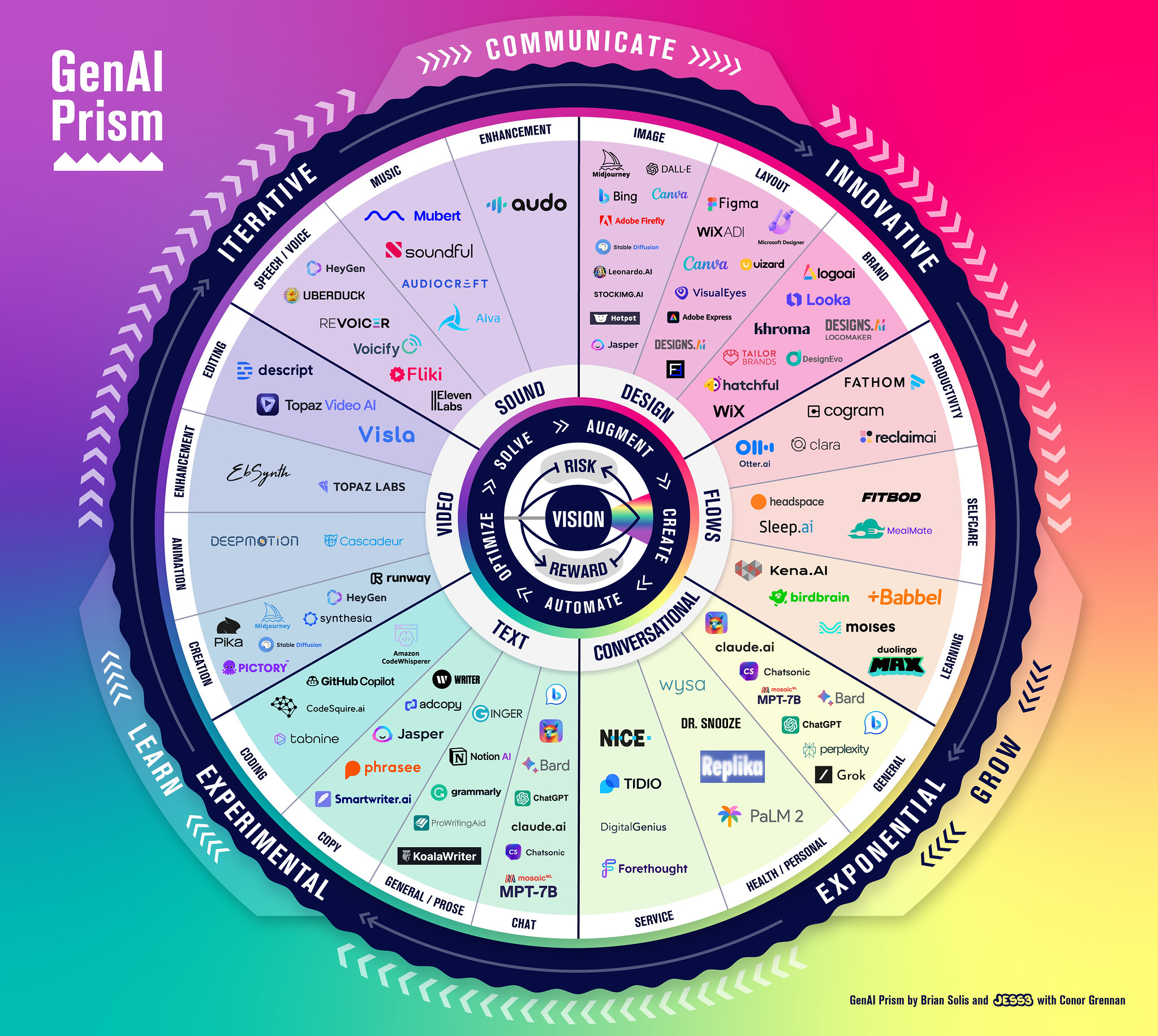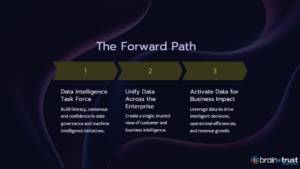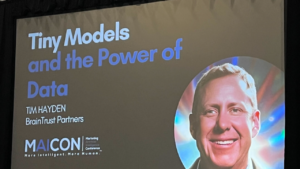When OpenAI released ChatGPT in November of 2022, the world as we knew it went into a tailspin of persistent change. Artificial intelligence went fast from a dramatized, science fiction version of machine learning and predictive modeling to something that felt — to millions of users — like a living thing. The Turing Test, once upheld as the de facto arbiter of AI’s validity, seemed utterly broken, with ChatGPT passing it more consistently than some humans … and, in the background, a new reality of how business would get done began to emerge.
And that was just the ChatGPT hype of Q1.
Hot on OpenAI’s heels, Meta launched Llama, a suite of their own large language models, and Google released Bard and PaLM 2 announcing Gemini in December of this year — which may prove to be the most influential of them all.
It is no exaggeration to say that within the next 18 months, more than 50% of your company’s technology stack may be replaced because of AI. From revolutionizing workflows to unlocking unprecedented business and market intelligence, AI has become the driving force behind a paradigm shift that demands executive attention. Companies that strategically leverage AI are set to gain a competitive edge, and navigating this transformation requires a blend of empathy, experience, and foresight.
Realizing Efficiency through Optimized Workflows
As 2023 comes to an end, the integration of AI into existing, established technology stacks demands a reevaluation of workflows for optimal efficiency. It can also help craft bespoke, specialized services that can not just automate repetitive tasks and allow your teams to focus on higher-value activities, but provide unique, generative insights that couldn’t be seen without your company’s unique data and processes.
It’s not just about adopting AI and integrating it into your existing workflows — it’s about redefining how your company interacts with itself and its customers and how you engage them, how it learns about them, and how it learns to better reflect their core values to build lasting trust. This isn’t possible using untrainable third-party AI services such as OpenAI or Anthropic.
Real-World Security Measures for Real-World AI Applications
At the cornerstone of consumer trust is data privacy and governance. While the practical application of AI is likely to create new challenges in data security, it can also be employed to constantly monitor your systems from threats both external and internal, with autonomous security agents that never sleep, never rest, and never miss a suspicious login.
In the next 18 months, your company will use carefully crafted products developed using AI to meet the new cyber security challenges presented by different AIs, and they’ll do so in ways that are HIPAA compliant and compatible with the FTC Safeguards and CARS rulings (among others).
In fact, AI agents already are serving as a digital security force — and they’re doing it at scale.
Realizing Scalability and Future-Readiness For Your Tech Stack
There is no such thing as “futureproofing” your business. In the real-world landscape of 2024, scalability is a non-negotiable aspect of tech stack considerations. As the proliferation of data continues and the tools we use to ingest and mine that data evolve, it’s imperative to develop system architectures and ecosystems that can scale with your company’s ambitions, building “future readiness” into your technology investments from the start, and ensuring your organization stays agile in the face of AI’s rapid evolution.
2023 Was the Year We Met AI, 2024 is the Year to Put AI to Work

This time in 2022, the AI revolution still seemed to many like a distant promise. Today, if you’re not already on the path toward implementing AI you’re several steps behind the market. AI has become a tangible reality, and there is no going back. Luckily, there are a number of specialized AI products designed to make interacting with the LLMs and MLMs as easy as having a conversation. From image generation and “creative” art to copywriting, video editing, self help, and healthcare, there is a specialized artificial intelligence product delivering results right now.
Brian Soli’s GenAI Prism (for “generative AI”) organizes the landscape of generative AI companies that automate and augment how people create and work in their personal and professional lives, acting as a comprehensive (but certainly not complete) reference guide to prompt human creativity and imagination to collaborate with AI toward more thoughtful, effective, and extraordinary outcomes.
As you look forward to 2024, Brain+Trust can help you embrace the real opportunities presented by AI with confidence and commit to making AI a real, daily component of your business in ways that transcend the status quo.
By March of 2024, the AI revolution will be in full swing, and we’ll be here to help guide you through it.
ORIGINAL CONTENT FROM BRAIN+TRUST.
ADDITIONAL NOTES AND SOURCES
-
- We launched our new podcast, Say-It-Again, this spring with an episode about the Mechanical Turk and compared the state-of-the-art of 18th Century AI with the then-new ChatGPT 4. Check it out here.
- We published another post about building trust with customers this past fall, and explored the relationships between brands, consumer trust, and a robust understanding of what’s hiding in customers’ data. You can read that post here.
- The featured image is a photo of Johnny 5 from the movie Short Circuit, the story of a fictional robot that gains a human-like intelligence after being struck by lightning, prompting it to escape its facility to learn more about the world. We loved it when it debuted in 1986 … though how it’s aged depends largely on your fondness for Ally Sheedy.







